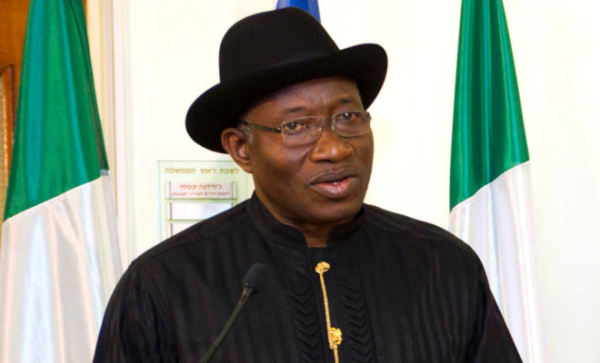In a report published by Buzzfeed concerning the ongoing international investigation over the controversial Malabu Oil Deal, former President Goodluck Jonathan was alleged to have probably received $200m of the $1.3bn paid by Shell and Eni for OPL 245 oil block considered to be one of the richest in Africa.
Shell, had on Monday, after leaked emails showed that it may have known that the $1.3bn it paid for the oil bloc was some form of bribery, confessed to knowing the money will be used to “pay off” some individuals.
Shell’s partners Eni, has said an internal investigation found no wrongdoing.
BBC, in a report on Tuesday, also said that emails showed that Jonathan allegedly received $466m which was shared among himself and members of his government.
BBC also reported that Shell and Eni negotiated with Etete one year before the $1.3bn payment was made in 2011.
Dan Etete, Nigeria’s Petroleum Minister in 1998 who is a convicted money launderer, had awarded the licence for OPL 245 oil block to Malabu Oil and Gas, a company he partly owned.
That contract was nullified by Olusegun Obasanjo when he assumed office as president in 1999.
Obasanjo assigned the oil block to Shell – without public bid. Ownership was suspiciously reverted to Malabu thereafter, leading to legal action by Shell who later resorted to negotiating directly with Etete after President Goodluck Jonathan assumed office in 2010.
Of the $1.3 billion paid by Shell and Eni for the block, only $210 million went into the federal government’s treasury as “signature bonus” while the rest went to Malabu Oil and Gas.
The oil block was handed over to the federal government following a Federal High Court order on January 26.
Shell filed a motion to reverse the order and on March 17, 2017, a Federal High Court sitting in Abuja ordered that the oil block be returned to Shell and Eni, an Italian oil company.
Shell’s confession came a day after a recording between its CEO Ben van Beurden, and his then chief financial officer, Simon Henry was leaked. The recording revealed that the company knew that a large percentage of the $1.3bn was going to Etete.
Ben van Beurden, in the phone call, expressed worries that the internal emails Shell’s investigators had uncovered could draw the attention of the United States Justice Department. In particular, he cited emails written by former members of the British spy agency known as MI6 that Shell had hired.



No comments:
Post a Comment
Leave A Comment